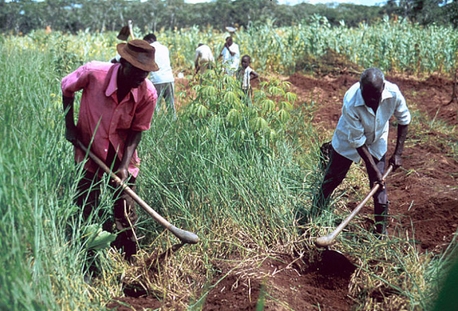
support@yorubalibrary.com
+2348073529208, 07038599574

The Yoruba people have a long history of communal support and mutual assistance. Before the advent of modern banking systems and structured labor organizations, the Yoruba developed unique methods of social and financial collaboration to help themselves in times of need. 
These traditional methods ensured stability, wealth circulation, and strong community ties. Below are some of the key ways through which the Yoruba people traditionally supported one another:
1. Esusu (Eesu)
Esusu, also known as Eesu, is a traditional financial savings system used by the Yoruba to support one another financially. It operates as a savings association, where a group of people forms a team and agrees on a fixed contribution amount at regular intervals, such as weekly or bi-weekly.
a) Members contribute an agreed sum into a common pool.
b) Esusu is widely practiced among traders, artisans, and community members to aid in business expansion, emergency funds, and other financial needs.
c) This system remains a fundamental savings method even today and has influenced modern cooperative societies and microfinance banking.
2. Owe (Òwè)
Owe is a communal labor system used to assist people in labor-intensive tasks such as farming, house construction, land clearing, and other forms of physical labor.
a) It is a voluntary service where people work together to achieve a common goal.
b) There is no expectation of repayment; it is done as a form of goodwill.
c) It strengthens communal bonds and ensures no individual struggles alone.
For example, if a person is building a house, members of the community may gather to help mold blocks, carry materials, and construct the structure without expecting payment.
3. Aaro (Àárò)
Aaro is similar to Owe, but with a key difference: it is based on reciprocity.
a) A person can invite a group of individuals to assist in farm work, house building, or other labor-intensive activities.
b) Those who assist must, in turn, receive similar support when they need help.
c) This form of labor-sharing ensures that everyone benefits and work is done faster and more efficiently.
d) Aaro fosters cooperation and prevents individuals from being overwhelmed by large tasks.
4. Osomaalo (Òṣòmààlo)
Osomaalo is a traditional credit system where goods and services are given to merchants on credit, with the understanding that payment will be made after the goods have been sold.
a) It allows traders to stock up on merchandise without initial capital.
b) The trader repays the supplier after selling the goods.
c) This system builds trust among businesspeople and helps sustain trade and commerce in Yoruba communities.
5. Ajo (Àjọ)
Ajo is another financial contribution system similar to Esusu but with a slight variation.
a) Members of the group contribute money regularly.
b) On the meeting day, numbers are randomly picked by members.
c) The person who picks the first number receives the entire collected fund for that cycle.
d) Unlike Esusu, repayment in Ajo is done in installments, meaning that the recipient of the first collection must continue contributing until the cycle is completed.
e) This method ensures that every participant gets access to bulk money at some point to meet personal financial needs.
6. Isingba (Ìṣìngbà)
Isingba is an ancient Yoruba practice of loan repayment using human collateral.
a) A person, usually a father or mother, borrows money from a lender.
b) Instead of using land or assets as collateral, the borrower offers a child (usually a son) to stay with the lender.
c) The child works for the lender in various capacities, such as farming or domestic service, to repay the loan.
d) Once the loan duration expires, the lender releases the child back to their family.
Conclusion
The Yoruba people have always upheld strong communal ties and self-help traditions. These methods—Esusu, Owe, Aaro, Osomaalo, Ajo, and Isingba—demonstrate their resourcefulness in financial management, labor assistance, and trade.
These indigenous financial and cooperative systems continue to influence modern savings and labor-sharing strategies, showing the enduring wisdom of Yoruba communal values. Today, elements of these practices are still visible in cooperative societies, rotating credit schemes, and informal business agreements across Yoruba communities and beyond

Learn about the Yoruba concept of Ìwà Pẹ̀lẹ́ (good…

Learn special praises for Divine Being and Creator…